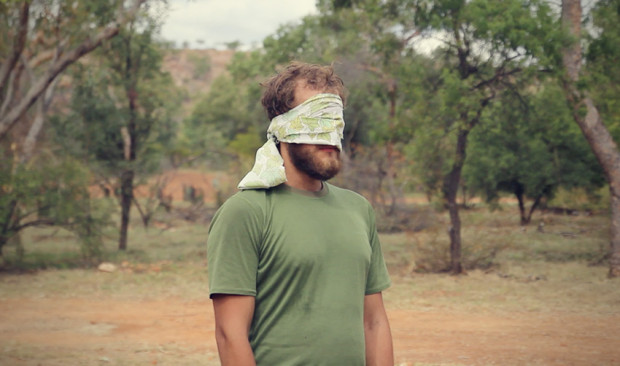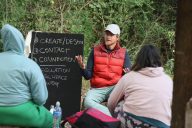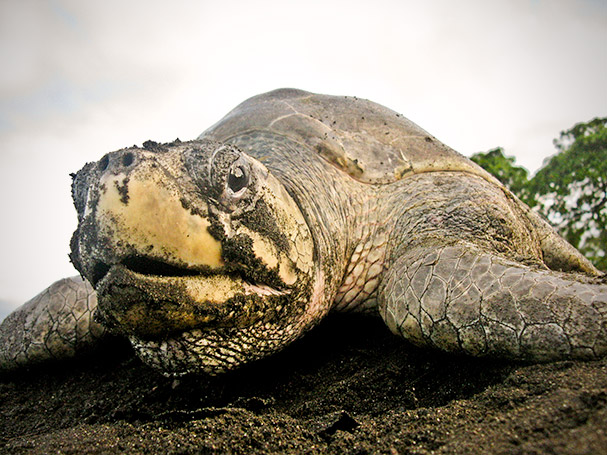A over-reliance on our eyes as our primary sense organ inhibits our engagement with environmental issues and our connection with nature.
When the term ‘eyes4earth’ was coined, it had clear ambitions in mind.
Launched 7 years ago on Earth Day, the original aim of ‘eyes4earth’ was to raise broader public awareness about the ‘big 3’ concepts of ecosystem services, biodiversity and climate change. It planned to do this through engaging visual technologies which directed our eyes toward earth and followed a credo of ‘information, innovation, inspiration and integration’: in other words, the 4 “i’s” for earth. Ok, nice.
That first phase of eyes4earth had its time in the sun between 2006-2009, with projects such as “The Question”. However, in line with my PhD research on meaningful nature experience (which largely stemmed from my experiences with this first phase), eyes4earth’s orientation shifted in 2010 to focus more on the PhD outreach.
During the course of this research process, it came to my attention that there is a bit of a problem with relying too heavily on our eyes as the primary vehicle for sensing and encountering the world.*
Many of the approaches taken within the sciences, education and in broader society are dominated by the ‘eye’ to, obviously, facilitate ‘observation’. Humans are primarily a visual species and we have used this to our evolutionary advantage. However, a dominance or over-reliance on vision in acquiring knowledge – particularly as applied through the conventional notion of being a neutral scientific ‘observer’ – means that we are increasingly likely to only encounter ecological and social issues as well as daily natural phenomena at a distance. We view it from ‘here’ and it sits ‘over there’ in a sanitized detached kind of way.
In this ‘sense’, we have become a little disembodied (Sir Ken Robinson alludes to this problem in his hilarious and much-viewed TED presentation “Why schools kill creativity”). When we solely rely on our vision to inform our thought, there is no impetus to really become involved, other than to form an external opinion. We have ‘seen’ it, we then think we ‘know’ it and that, to our mind, is often enough. But clearly if you look at the challenges facing humankind, ‘seeing might be believing’ but that doesn’t mean ‘doing’.
One remedy is to ‘get in touch’ and strive for a union of all our senses. When engaging other senses like touch, smell, taste and, to some extent, hearing, we become far more involved, attached and embodied in the situation or issue ‘at hand’. This informs the way we think. Our thinking is based on these intimate lived experiences of the world – so we think through vision, sound, touch and movement. If we only base our thinking on what we see, then we are not actually getting the ‘full picture’ of the world around us and nor are feeding our full potential for a holistic state of mind and being.
When we are engaged with what we might call ‘attentive & embodied participation’, we are also much more likely to have positive and desirable emotions such as compassion and empathy with ‘the other’ (e.g. issue, situation, person, place). Using all our senses, we sense something in them that is us. We find and appreciate the history of that ‘other’ – a history crafted by unique experience, i.e. wisdom. This is a wisdom outside of ourselves and the intellectual theories, suppositions and judgements we are prone to constructing with our mind. We sense and participate in the world around us and, when it comes to connecting with nature, we can find a presence and meaning which allows us to perceive and feel more than just the meaning we cognitively make ourselves. So, yes, our reality may be largely a social construction through culture and language, but there should also be an appreciation that we encounter a certain amount of our reality outside of that which just exists in our heads.
Embodied participation is embedded in a ‘hands-on’ – and usually creative – understanding of the human-nature relationship. So if we really want to show a concern for the issues we see and say we care about it, we have to get involved – physically, emotionally and spiritually. Intellectual involvement is no longer enough, if it ever was. This realization should be fundamental to education – because what we need at this point of human history is persons who are fully connected with place, people and the problems and possibilities which arise through their interactions with them. If we do not feel connected with something, why would we care about it?
“The work of the eyes is done. Go now and do the heart-work on the images imprisoned within you”
~ Rainer Maria Rilke
So is that the end for ‘eyes4earth’ then? Not quite. Remember that intentionality is the central structure of human consciousness and selective attention is about choosing (usually with our eyes) what we pay attention to in order to select the experiences which form our everyday consciousness. So, yes, in fact ‘eyes’ for ‘earth’ is a first and necessary step. But when you are there, when your attention is honed in on nature, don’t just let your eyes do all the processing alone. Be bold and take the next step in giving your eyes some sensory support in having a fully embodied experience with earth.
References:











Be the first to share a comment